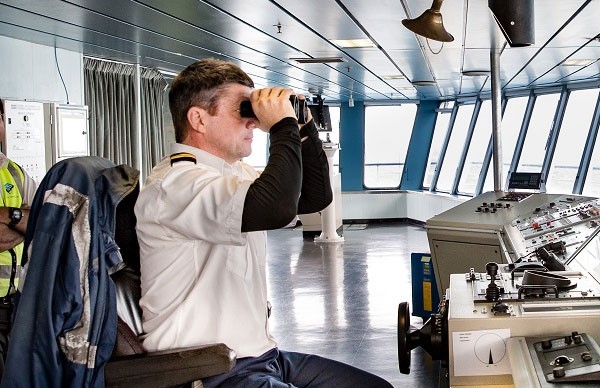You can become an officer of the Watch(OOW) in the UK by meeting specific training and certification requirements. OOW serve the UK registered commercial merchant ships as a deck officer but with limitations. An officer of the watch (OOW) requires an OOW Certificate of Competency(CoC) and also an endorsement of Standards of Training, Certification and Watch-keeping (STCW). To become an Officer of the Watch, you will need to undergo classwork, sea services, and an oral examination.
Under STCW Convention, seafarers should meet specific standards. You must successfully undergo training approved by an eligible body or complete a seagoing service endorsed by a relevant body to obtain a certificate. However, you might need a combination of the two for most of the certification. Your certificate will depend on the rank, type of water vessel you are serving, and your responsibilities in the ship. To become an Officer of the Watch, you can apply for the OOW course in the UK.
General Requirements by MCA for CoC for an Officer of the Watch
Officer of the Watch Certificate consists of 7 different modules for the Certificate of Competency and prepares you for the MCA oral exam.
- Must meet minimum age requirements
- Must complete the minimum period of seagoing service
- Must have a medical fitness certificate
- Must hold applicable safety course certificate
- Must complete appropriate education and training meeting minimum vocational and academic standards
- Must Pass MCA oral examination
Terms For Reference
CoC- Certificate of Competency
OOW- Officer of the Watch
SQA- Scottish Qualifications Authority
MCA- Maritime and Coastguard Agency
STWC- Standards of Training, Certification and Watchkeeping (for seafarers)
MNTB- Merchant Navy Training Board
Minimum Requirements for Certification of OOW Unlimited in The UK
- Must be having a minimum age of 18 years, however, must have obtained either of the following since age 16;
- Approved seagoing service with at least 12 months of Cadet Training Program or Hons Degree both MNTB approved. The training must have included onboard training that meets STCW code requirements of section A-II/1. In addition, the approved training must cover bridge watchkeeping duties during the seagoing service. The trainers need to capture the course training in the approved Training Record Book.
OR
- Approved seagoing service as part of MCA approved Overseas Collaborative Program. The training must include onboard training that meets STWC code section A-II/1 and must appear in an approved Training Record Book.
- A seagoing service totalling 36 months, including six months of bridge watchkeeping, forms part of the Officer of the Watchkeeping training. If you can demonstrate this service, you will be eligible to undertake the MCA approved Experienced Seafarer Route.
- Must complete an approved education and training program that meets the standards of the STWC code section A-II/1. Also, you must hold a Signals Certificate, which you have acquired three years before the issuance of CoC.
- You must pass SQA OOW written examinations at an approved SQA Centre in Navigation, Stability and Operations.
- Must pass MCA oral examination C.
Important Points to Note
- If accepted onto an MNTB- approved cadet training program, you must obtain a letter from the institution confirming your attendance on the course.
- Suppose you are undertaking an MCA-approved Overseas Collaborative program overseen by a UK nautical institution; you must obtain a letter confirming your attendance at the training and fulfilling the applicable seagoing service requirements.
- If you can demonstrate 36 hours of good seagoing service, you can undertake the MCA-approved Experienced Seafarer Route.
- If you undertake and pass the MNTB-approved Hons Degree, Foundation Degree, or Scottish Professional Diploma to the required level, you will be exempt from SQA OOW II/1 written examinations.
For OOW officers in the UK, certificates are essential. They are the primary evidence that you meet the required maritime education and training requirements and the period of seagoing service, medical fitness, age and all other professional competencies in line with STCW standards. The administrations ensure that only those who meet the STCW standards get the OOW certificate.

